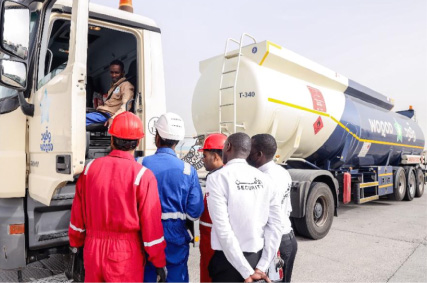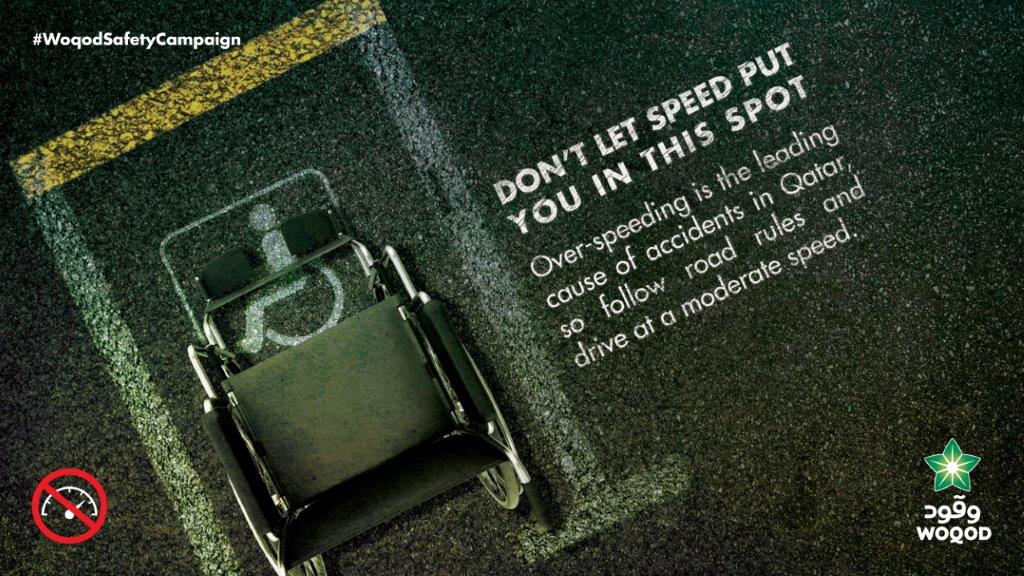Awareness Campaign
Safety awareness is the first step in implementing a successful safety program., While putting policies in place is crucial, it is not enough to ensure employees follow these policies.
Safety Awareness is the first step in implementing a successful safety program. While establishing policies is essential, it is not sufficient to guarantee compliance. WOQOD ensures that safety policies remain a priority for employees in their daily operations. Furthermore, promoting safety awareness demonstrates WOQOD management’s commitment to employee well-being.
Road Safety:
Supplying the entire fuel needs of the State of Qatar is a tremendous responsibility. As the operator of the country's largest fleet, road safety remains a top priority. However, motor vehicle accidents continue to pose a significant risk to our business.
Our journey toward safer roads begins with strong leadership commitment, ensuring compliance and fostering continuous improvement. As part of our corporate controls, we rely on key metrics to enhance road safety. These metrics include the vehicle accident rate and its consequences, such as injuries, spills, or rollovers. The collected data informs decision-making and contributes to developing vehicle specifications that exceed regulatory requirements.
Driver behavior plays a critical role in our road safety program. New drivers are hired only after meeting a strict set of competencies. They undergo extensive training in defensive driving techniques and specialized tanker operations, addressing risks such as rollovers, load assessment, driver fatigue, and fitness to work.
Additionally, our Vehicle Tracking System enables real-time monitoring of driver performance, including daily routes, speeding incidents, hard braking, sharp acceleration, and seat belt compliance. This system is installed in all our vehicles as an integral part of our comprehensive road safety strategy.

Seatbelt Monitoring Campaign:
As part of WOQOD’s ongoing commitment to road safety, the QHSSE department, in coordination with LDO and Gas Operations, regularly conducts Seatbelt Monitoring Campaigns at Doha Depot, the LPG Bottling Plant, and other WOQOD operational sites.
These campaigns aim to ensure maximum compliance with proper seatbelt usage within geofenced operational areas. Additionally, they reinforce the importance of WOQOD’s “Wear Your Seatbelt” Life-Saving Rule, promoting a strong safety culture across all locations.
Speed Monitoring Campaign:
Further to WOQOD’s commitment to Road Safety, QHSSE in coordination with LDO and Gas Operations conduct surprise Speed Monitoring Campaign at Doha Depot, LPG Bottling Plant and other WOQOD Locations premises to ensure maximum compliance to correctly wearing Seatbelt within geofence at the operational areas and to promote “No Speeding” WOQOD Life Saving Rule.


Road Tanker Operator Safety Awareness Campaign:
WOQOD’s QHSSE department, in coordination with the Ministry of Interior (MOI), organized a Road Tanker Operator Safety Awareness Campaign in March 2022 at Doha Depot, the LPG Plant, and HIA to promote road safety.
The campaign aimed to raise awareness of driving regulations, highlight common driver mistakes to avoid, and encourage drivers to adopt safe driving behaviors.
Annual Sustainability Reports:
Since 2013, WOQOD has been publishing an annual Sustainability Report detailing its achievements in environmental, social, and governance (ESG) aspects. This report aligns with the Global Reporting Initiative (GRI) principles of materiality, covering topics that reflect the organization’s significant economic, environmental, and social impact.
The information presented in the report is based on historical performance data and data from the reporting period, calculated using standard guidelines, assumptions, and methodologies. For instance, greenhouse gas emissions are derived from standard formulas and calculations. Unless otherwise specified, the quantitative data covers the entire reporting period from January 1 to December 31.
Additionally, the report provides insights into key strategic decisions and initiatives introduced during the reporting period.

